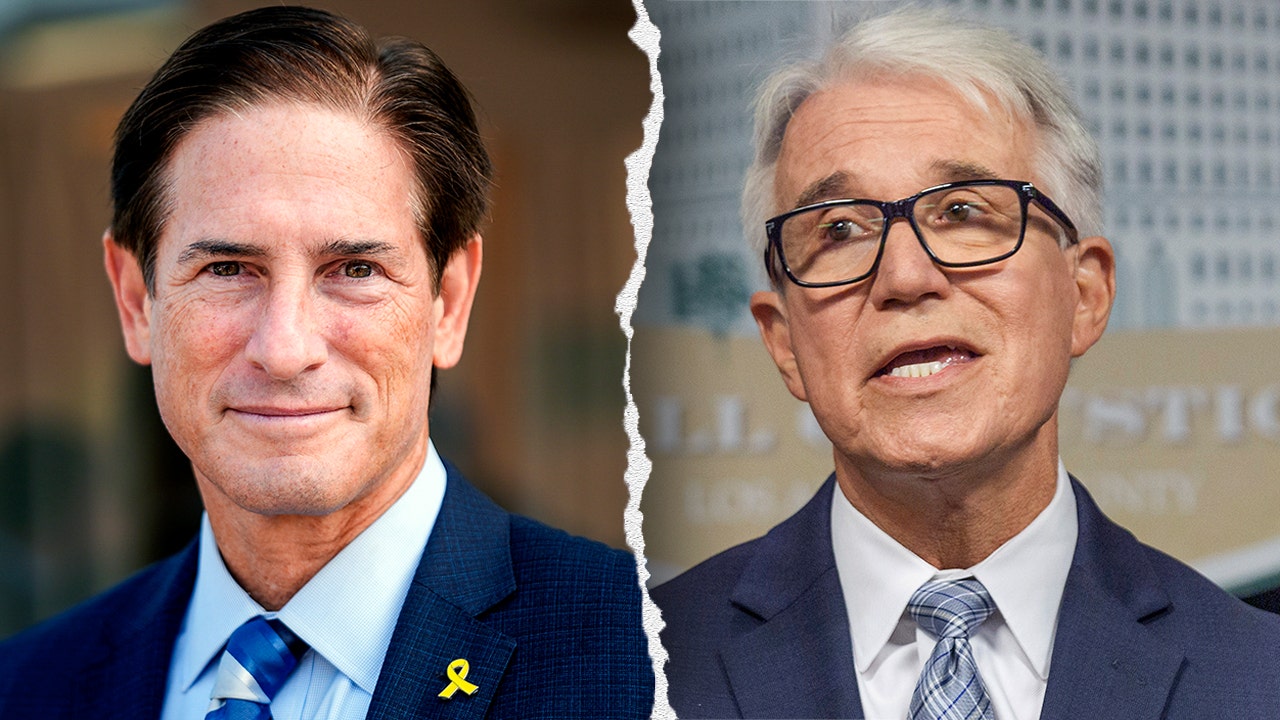Los Angeles DA Elect Aims to Restore Trust in Justice
Restoring Trust in the Justice System: The Vision of Los Angeles DA Elect
When it comes to the justice system, no one likes to feel like they’re caught in a web of confusion, mistrust, and frustration. Right now, the people of Los Angeles are at a crossroads, and a new District Attorney (DA) elect aims to untangle that mess. After a period of turmoil under the previous DA, the newly elected official has a mission: to rebuild trust in a system that many feel has lost its way. But how does one go about restoring faith in something so fundamental? Let’s dive into the nuances of this vital topic.
The State of Justice in Los Angeles
Los Angeles is one of those places where the glitz and glam often overshadow deeper issues—things like crime, justice, and the role that prosecutors play in the community’s safety. However, the DA’s office isn’t just about punishing wrongdoers; it’s also about collaboration and understanding between the community and law enforcement.
The Problem: Erosion of Trust
Over recent years, the DA’s office has faced criticism for being out of touch with the community it serves. Victims have voiced their frustrations, stating they feel ignored or, even worse, blamed for the crimes committed against them. This erosion of trust can often be likened to a cracked relationship; once it’s damaged, it takes substantial effort to repair.
- High-profile cases with perceived injustices
- Conflicts with law enforcement agencies
- Communities feeling neglected
The Role of the District Attorney
A DA should be more than just a figure in a suit sitting behind a desk. They are the guardians of justice, responsible for prosecuting crimes, advocating for victims, and promoting fair and equitable treatment under the law. When they lose the community’s trust, their mission becomes almost impossible. So, what does the new DA elect propose to do differently?
A New Approach to Justice
A Focus on Community Engagement
One of the most significant changes being promoted by the new DA is a commitment to community engagement. It’s crucial to listen to the voices of those directly affected by crime. This means holding town hall meetings, creating an open-door policy, and striving to understand the unique challenges faced by different neighborhoods.
- Listening Tours: The new DA plans to go out into the community, meet residents, and hear their concerns.
- Victim Support Programs: Initiatives designed to help victims regain their voice and find the support they need.
Transparency and Accountability
Have you ever felt frustrated trying to navigate a bureaucracy that seemed more interested in covering its tracks than getting things right? Well, it’s time for a change. The new DA is advocating for increased transparency and accountability within the office.
- Data-Driven Decisions: Utilizing data analytics to help in making informed decisions rather than following outdated methodologies.
- Regular Updates: Providing consistent updates on case progress and departmental initiatives.
Collaboration with Law Enforcement
The relationship between the DA’s office and law enforcement agencies isn’t always smooth sailing. This new administration aims to foster collaboration instead of conflict. Imagine a sports team where each player knows their role, understands the playbook, and works together to score. That’s the vision here.
- Joint Training Sessions: Encouraging both prosecutors and police officers to train together fosters understanding and cooperation.
- Shared Goals: Establishing common objectives around community safety and justice.
Priorities for the New Administration
Prioritizing Victims’ Rights
At the forefront of this new direction is a focus on victims’ rights. After all, the justice system is meant to serve those affected by crime. A strong advocate for victims is not just a mouthpiece but a proactive force in the justice system.
- Enhanced Victim Services: Expanding support for victims—from counseling services to legal assistance.
- Empowering Voices: Ensuring victims feel heard and understood throughout the legal process.
Criminal Justice Reform
With the onset of discussions surrounding criminal justice reform, the new DA recognizes that current practices may need to be re-evaluated. After all, outdated policies can lead to negative outcomes not just for offenders but for communities at large.
- Decriminalizing Certain Offenses: Looking towards alternatives for minor offenses and focusing on rehabilitation rather than punishment.
- Reducing Racial Disparities: Making conscious efforts to eliminate bias within the system.
Innovative Crime Prevention Programs
Crime prevention is better than cure, right? The new DA’s office is committed to innovative programs aimed at reducing crime before it happens. Think of it as planting seeds today for a flourishing community tomorrow.
- Positive Youth Initiatives: Engaging young people in activities that promote community involvement and prevent crime.
- Community Partnerships: Working with local organizations to address root causes of crime, such as poverty and lack of education.
Building Trust Takes Time
Change doesn’t happen overnight, and restoring trust within the justice system is no exception. It requires consistent effort, self-reflection, and a commitment to doing better.
Listening to the Community
One major step toward rebuilding trust is genuinely listening to community concerns. The new DA aims to implement feedback mechanisms, where people can voice their opinions and suggestions. It’s akin to tuning in to the right radio station—if you’re not tuned in, you won’t get the message.
Open Dialogue with Criticism
Embracing criticism can often be hard, but it’s essential for growth. The new DA has expressed interest in creating channels for community feedback to ensure that they are on the right track. By fostering a culture of transparency, they can begin to change the narrative.
Conclusion: A Path Forward
Restoring trust in the justice system is like mending a broken bridge; it requires diligence, commitment, and a willingness to understand the other side. The new Los Angeles DA elect is poised to embark on a journey that prioritizes community engagement, transparency, and victim advocacy. While challenges are inevitable, the focus on collaboration and reform holds promise for a more trusting relationship between the community and its justice system.
FAQs
1. Why is community engagement important for the new LA DA?
Community engagement ensures that the DA’s office understands the concerns and needs of its residents, leading to more effective policies.
2. What role do victims’ rights play in the new DA’s agenda?
Victims’ rights are pivotal to the new DA’s mission, ensuring that victims receive the support and advocacy they deserve throughout the legal process.
3. How will the new DA improve transparency in the office?
The new DA plans to implement regular updates on cases and use data-driven strategies to allow the community to understand decision-making processes better.
4. What specific reforms are being considered in the justice system?
The administration is looking at decriminalizing minor offenses and focusing on rehabilitation, rather than simply punishing offenders.
5. How can residents get involved in the efforts to restore trust in the justice system?
Residents can participate in town hall meetings, provide feedback to the DA’s office, and engage in community programs that support crime prevention.







